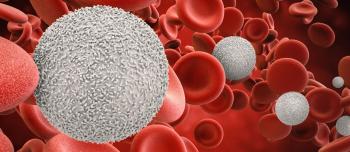In December 2013, the US Food and Drug Administration (FDA) approved Sovaldi (sofosbuvir), a daily oral nucleotide analogue inhibitor, for the treatment of four genotypes of hepatitis C viral (HCV) infection -- 1, 2, 3 and 4. The drug is the first to demonstrate safety and efficacy in treating HCV genotypes 2 and 3 infection with oral ribavirin alone, without the need for interferon injections. It has also been approved in combination with ribavirin only for patients with genotype 1, the most common strain, who cannot tolerate interferon. Other patients with genotype 1 and those with genotype 4, both of which are more difficult to treat, will take Sovaldi with interferon and ribavirin.
Sovaldi, a small molecule compound that blocks HCV's ability to replicate, is manufactured by Gilead Sciences, Inc. Gilead is one of several companies investigating alternatives to the existing standard of treatment for HCV--weekly injections of pegylated interferon (peg-IFN) and a daily ribavirin (RBV) oral pill. This regimen is not ideal, as nearly 50% of patients do not respond to it. In addition, those who do respond often experience debilitating side effects that can last the duration of the treatment -- either 24 or 48 weeks. Pharmaceutical companies are experimenting with interferon-free regimens to eliminate some of the challenging side effects.
Sovaldi was evaluated in six clinical trials consisting of 1,947 participants who had not previously received treatment for HCV (treatment-naive) or had not responded to previous treatment (treatment-experienced), including participants co-infected with HCV and HIV. The trials were designed to measure whether HCV was no longer detected in the blood at least 12 weeks after completing therapy. Sustained virologic response (SVR) signals that a patient has "cleared" the virus after completing therapy. Patients who achieve SVR are considered cured of their HCV infection.
Results from the clinical trials showed that a therapy regimen containing Sovaldi was effective in treating HCV genotypes 1, 2, 3 and 4. Sovaldi also exhibited efficacy in patients who could not tolerate or take an interferon-based treatment regimen, and in people with liver cancer awaiting liver transplantation, addressing unmet medical needs in these populations. Treatment regimens were taken for 12 or 36 weeks, depending on the patients' previous history and genotype.
"Today's approval represents a significant shift in the treatment paradigm for some patients with chronic hepatitis C," said Edward Cox, MD, director of the Office of Antimicrobial Products in the FDA's Center for Drug Evaluation and Research.
The most common side effects reported in clinical study participants treated with Sovaldi and ribavirin were fatigue and headache. In participants treated with Sovaldi, ribavirin and peginterferon-alfa, the most common side effects reported were fatigue, headache, nausea, insomnia and anemia.
Source: FDA news release dated December 6, 2013





